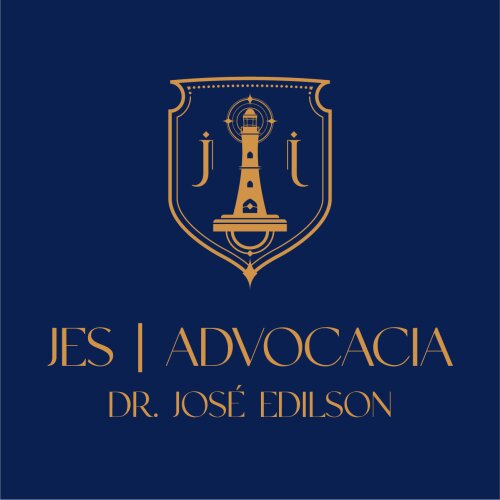Best Child Visitation Lawyers in Santo Andre
Share your needs with us, get contacted by law firms.
Free. Takes 2 min.
Free Guide to Hiring a Family Lawyer
List of the best lawyers in Santo Andre, Brazil
About Child Visitation Law in Santo Andre, Brazil
Child visitation, known as “direito de visita” in Brazil, is a legal right granted to parents or guardians who do not hold primary custody of a child but still wish to maintain a relationship. In Santo Andre, as in the rest of Brazil, the primary goal of visitation laws is to safeguard the best interests of the child, ensuring the child has ongoing access to both parents and their families where appropriate. Visitation can take various forms, from structured schedules to more flexible agreements, depending on the unique needs of the child and family. Judicial intervention is sometimes necessary to formalize or enforce visitation arrangements when parents are unable to come to a mutual agreement.
Why You May Need a Lawyer
There are several situations where legal guidance is recommended in child visitation matters. If parents are unable to agree on visitation terms, or if one parent is denying the other access to the child, a lawyer’s assistance can help mediate and formalize agreements or represent your interests in court. Legal representation is also crucial if there are concerns about parental fitness, child safety, or in cross-border cases involving relocation. Lawyers can help draft enforceable visitation schedules, request modifications in case of changing circumstances, and file necessary motions with family courts. If you face threats, violence, or complex family arrangements, a lawyer in Santo Andre with family law expertise can help protect your rights while prioritizing the child’s wellbeing.
Local Laws Overview
Santo Andre follows Brazilian federal law, chiefly the Civil Code and the Child and Adolescent Statute (Estatuto da Criança e do Adolescente - ECA), regarding child visitation. The law recognizes that a child has the right to maintain relationships with both parents after separation or divorce. Typically, visitation is granted to the non-custodial parent, and failing a mutual agreement, a judicial determination is made. The court evaluates what serves the child’s best interests, taking into account age, routine, emotional bonds, and parents’ circumstances. In cases involving risk to the child or allegations of abuse, supervised visitation may be ordered or visitation may be suspended. All decisions are subject to review as circumstances change.
Frequently Asked Questions
What is the process for setting up a child visitation schedule in Santo Andre?
Parents may agree informally on a schedule, but for enforceability and legal protection, it is advisable to court-approve the visitation plan through a consensual or contested family law action. The judge will review details and may order a child services evaluation if needed before approving or establishing a schedule.
Who can apply for visitation rights?
Usually, non-custodial parents apply, but grandparents and other family members may also request visitation if they can show it is in the child’s interests and that they have a significant bond.
Can the child refuse to visit the non-custodial parent?
Depending on age and maturity, the child’s wishes may influence the court’s decision, but the ultimate ruling focuses on the child’s best interests. Chronic refusal could indicate underlying issues needing investigation.
What happens when a parent denies the other visitation?
If a custodial parent prevents access without legal cause, the affected parent can petition the Family Court to enforce rights. Persistent denial may result in sanctions and changes to custody or visitation arrangements.
Can visitation be supervised?
Yes. If there is concern about a child’s safety or wellbeing, the court may determine that visits must be supervised by an agreed third party or social worker until it is deemed safe to allow unsupervised contact.
How are holidays and special occasions handled?
Holiday and special occasion visitation is often addressed in visitation agreements, typically alternating important dates like birthdays, Christmas, and Mother’s/Father’s Days between parents, ensuring the child shares these times with both families over the years.
Can visitation schedules be modified later?
Yes. If circumstances change, such as relocation, remarriage, or a change in the child’s needs, either parent can request a schedule modification through the court.
What is the usual visitation schedule?
There is no single standard schedule. Every case is tailored, but common arrangements include visitation every other weekend, alternating holidays, and extended time during school vacations.
Do parents need a lawyer for child visitation cases?
While not required, having professional legal help ensures all legal steps are followed and that your and your child’s interests are effectively represented, especially in contested or complex matters.
What if one parent wants to move to another city or country?
Relocation cases are complex. The moving parent must inform and often seek court approval to alter visitation or custody arrangements. The court will assess the impact on the child and the parent-child relationship before authorizing or denying the move.
Additional Resources
- Family Court of Santo Andre (Vara da Família de Santo André): The primary body for processing visitation and custody matters. - Public Defender’s Office (Defensoria Pública): Offers free legal assistance for those who cannot afford a private lawyer. - Child and Adolescent Protection Councils (Conselho Tutelar): Protects children’s rights and can intervene in urgent visitation or custody issues. - Order of Attorneys of Brazil - Santo Andre Section (OAB Santo André): Can refer you to experienced family law attorneys. - Social Services: Family health and social assistance centers provide guidance and psychological support during custody and visitation conflicts.
Next Steps
If you need legal support with child visitation in Santo Andre, prepare all relevant documents such as proof of paternity or maternity, details about your living situation, and any existing agreements or court orders. Consider consulting a local family lawyer or the Public Defender’s Office. Keep records of communication with the other parent about visitation attempts. Remember that every case is unique, so seek tailored legal advice to protect your rights and your child’s wellbeing. Early legal counsel can help resolve disputes and prevent future issues, ensuring the child’s emotional and legal security.
Lawzana helps you find the best lawyers and law firms in Santo Andre through a curated and pre-screened list of qualified legal professionals. Our platform offers rankings and detailed profiles of attorneys and law firms, allowing you to compare based on practice areas, including Child Visitation, experience, and client feedback.
Each profile includes a description of the firm's areas of practice, client reviews, team members and partners, year of establishment, spoken languages, office locations, contact information, social media presence, and any published articles or resources. Most firms on our platform speak English and are experienced in both local and international legal matters.
Get a quote from top-rated law firms in Santo Andre, Brazil — quickly, securely, and without unnecessary hassle.
Disclaimer:
The information provided on this page is for general informational purposes only and does not constitute legal advice. While we strive to ensure the accuracy and relevance of the content, legal information may change over time, and interpretations of the law can vary. You should always consult with a qualified legal professional for advice specific to your situation.
We disclaim all liability for actions taken or not taken based on the content of this page. If you believe any information is incorrect or outdated, please contact us, and we will review and update it where appropriate.














